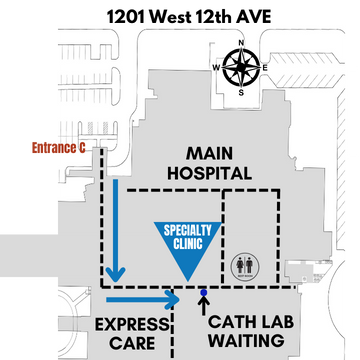Nephrology
Nephrology is a branch of internal medicine that deals with the kidneys and their diseases. The word “nephrology” comes from the Greek words “nephros” (kidney) and “logos” (study of). Nephrologists are doctors who specialize in the diagnosis, treatment, and prevention of kidney diseases.
The kidneys are two bean-shaped organs that are located in the back of the abdomen. They are responsible for a variety of important functions, including:
- Filtering blood: The kidneys filter about 120-150 quarts of blood every day. They remove waste products, excess water, and electrolytes from the blood.
- Regulating blood pressure: The kidneys help to regulate blood pressure by producing hormones that control the body’s fluid balance.
- Making red blood cells: The kidneys produce a hormone called erythropoietin, which stimulates the bone marrow to make red blood cells.
- Maintaining electrolyte balance: The kidneys help to maintain the body’s electrolyte balance by controlling the levels of sodium, potassium, chloride, and other electrolytes in the blood.
- Making vitamin D: The kidneys help to convert vitamin D from its inactive form to its active form, which is essential for bone health.

Dr. Pierre Souraty practices nephrology with Kansas Nephrology Physicians, P.A. headquartered in Wichita, KS.
He earned his medical degree from St. Joseph University School of Medicine in Lebanon, followed by an internship in Kansas, A residency in Iowa, and a fellowship in Minnesota.
Website
Main (316) 263-7285
Appts: (316) 263-7285
Specialty Clinic. Enter through the Main Entrance (C)

Kidney diseases can range from mild to severe. Some common types of kidney disease include:
- Acute kidney injury: This is a sudden loss of kidney function. It can be caused by a variety of factors, including infection, dehydration, and certain medications.
- Chronic kidney disease: This is a long-term condition that gradually damages the kidneys. It is the most common type of kidney disease in the United States.
- Glomerulonephritis: This is a group of diseases that affect the glomeruli, which are tiny filters in the kidneys.
- Pyelonephritis: This is an infection of the kidneys.
- Kidney stones: These are hard deposits that form in the kidneys.
- Kidney cancer: This is a type of cancer that starts in the kidneys.
Nephrologists play an important role in the diagnosis and treatment of kidney diseases. They can order tests, such as blood tests, urine tests, and imaging tests, to diagnose kidney disease. They can also prescribe medications, recommend lifestyle changes, and manage dialysis or kidney transplantation for patients with advanced kidney disease.
Nephrologists are also involved in the prevention of kidney diseases. They can educate patients about the risk factors for kidney disease and how to reduce their risk. They can also work with patients to manage other health conditions that can damage the kidneys, such as diabetes and high blood pressure.
Nephrology is a complex and challenging field, but it is also very rewarding. Nephrologists have the opportunity to help patients with a variety of kidney diseases and improve their quality of life.
Here are some additional information about nephrology:
- The American Society of Nephrology is the professional society for nephrologists in the United States.
- The National Kidney Foundation is a nonprofit organization that provides information and support to people with kidney disease and their families.
- The Kidney Disease Outcomes Quality Initiative (KDOQI) is a program of the National Kidney Foundation that develops guidelines for the diagnosis and treatment of kidney diseases.
